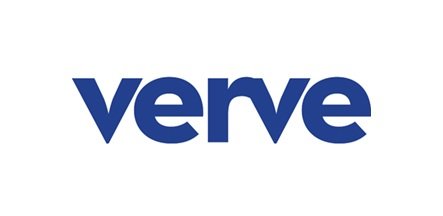Caren Dewar - Urban Land Institute Minnesota
/Listen. Do you hear that?
Somewhere in Minneapolis someone is talking about development with a policy leader, a real estate broker, or land use expert. There is a good chance that the topic or the conversation is being curated by Caren Dewar or her colleagues at Urban Land Institute, Minnesota (ULI). There is a good chance they are talking about things that matter to you: housing, public open space, or the bustling commercial node where you can get a really good cup of coffee.
If you are not a mayor, or a hydrologist, economist, realtor, placemaker, engineer, or long range planner, you might not realize how many conversations, how many codes, how many trends and data points one has to wade through to get at good design. With local and global issues on the table – climate change, homelessness, equity, parking, light pollution, walkability, public health, markets, songbirds, storm water, transit – no one, and no one agency, can solve the myriad challenges we face, or create vibrant, safe, healthy, joyful and livable places alone.
That’s where Caren’s influence shines at ULI. As Executive Director of the membership organization, she convenes and engages public and private sector leaders to share ideas, dissect dilemmas, and shape development in cities and towns around the state of Minnesota. By hosting frequent conversations with decision makers and leading best-practice workshops, ULI mines “the wisdom in the room” to challenge norms and instigate innovation. “Our mission is thriving communities,” Caren says. “Our hope is that with informed leadership there will be insight and inspiration that will lead to changed action. That action is a first step to changing the norms for how things get done.”
Cities are dynamic places and, increasingly, where people want to live. According to the United Nations, by 2050 68% of citizens worldwide will be city dwellers. Today, 55% of the world’s population lives in cities, and North America hosts the largest number of citizens living in urban areas: 82% as of 2018 (https://bit.ly/2KwBaDE). Urbanization is on the rise in Minnesota as well. “The trends are to live closer to stuff rather than further away from stuff,” assesses Caren. That means cities need to prepare to house people of all income levels, across age, occupation and stage of life. Cities need to support jobs; space for leisure and movement; green space, schools, and commercial nodes with accessible goods and services. Public safety is a must; so, too sanitation, transit, clean water, sunlight, and opportunities for people to gather, connect, and create community.
Often, those issues cannot be solved with mere “technical” fixes but involve multiple agencies and individuals with multiple perspectives and skills. Good city planning prepares fertile ground for partnerships, cross-pollination and sound, sustainable policies to germinate and produce value. Caren and ULI Minnesota not only facilitate conversations among real estate brokers, urban designers and other development professionals, they invite mayors, city councils, planning commissions and citizens to investigate current research and best-practice models, expanding capacities to create thriving places.
As a programming example, ULI Minnesota convenes mayors from across the state to innovate and create change through the Minnesota Regional Council of Mayors. Membership commits mayors to attend quarterly meetings, with time dedicated to study sessions, expert panel discussions, and informal conversations to hone attendees’ knowledge and leadership skills, and to foster human relationships. ULI’s invitation and approach is inclusive: “Our work, and our mission, is non-partisan,” Caren says, “and people work hard to protect that. We say ‘Things happen across relationships at the speed of trust.’ We are broadening the lens, the context of solution-making.” Topics for discussion include housing, the environment, transportation, jobs and healthy communities. Shoreview Mayor Sandy Martin concurs that expanding capacity involves collaboration, offering, “We can learn a great deal from one another and have an impact beyond the boundaries of our respective communities.”
Inviting ideas and convening people are skills that Caren has honed over her career. She didn’t start out shaping cities; she started out shaping elementary school students as a 5th grade teacher in Illinois. Her enthusiasm for learning and teaching is palpable: “I’m a learner first,” she exclaims, “and I have an ‘I’ll do it!’ attitude.” After moving to Minneapolis and working as a stay-at-home mom, Caren got involved in the Powderhorn Resident Group, recognizing placemaking and community building as driving forces within her. She got her broker’s license; she worked in housing and the private sector. She served on the Metropolitan Council. Caren transferred her influence from classroom to neighborhood, and at ULI from classroom to corridor, city, region, and state. She maintains the same principle from her early classroom experience: “I said to my students, ‘Each of you is different, each of you has needs, and I will help you grow as fast you can, and your classmates will help you.’” Caren continues: “I put my hope in the next generation of leaders. They are the million points of light. At ULI Minnesota, we challenge our members to say, ‘What is the one thing we can do today’ to make our cities better?”
For more information: https://minnesota.uli.org/
Photo credits: Tracy Nordstrom and ULI Minnesota web site







